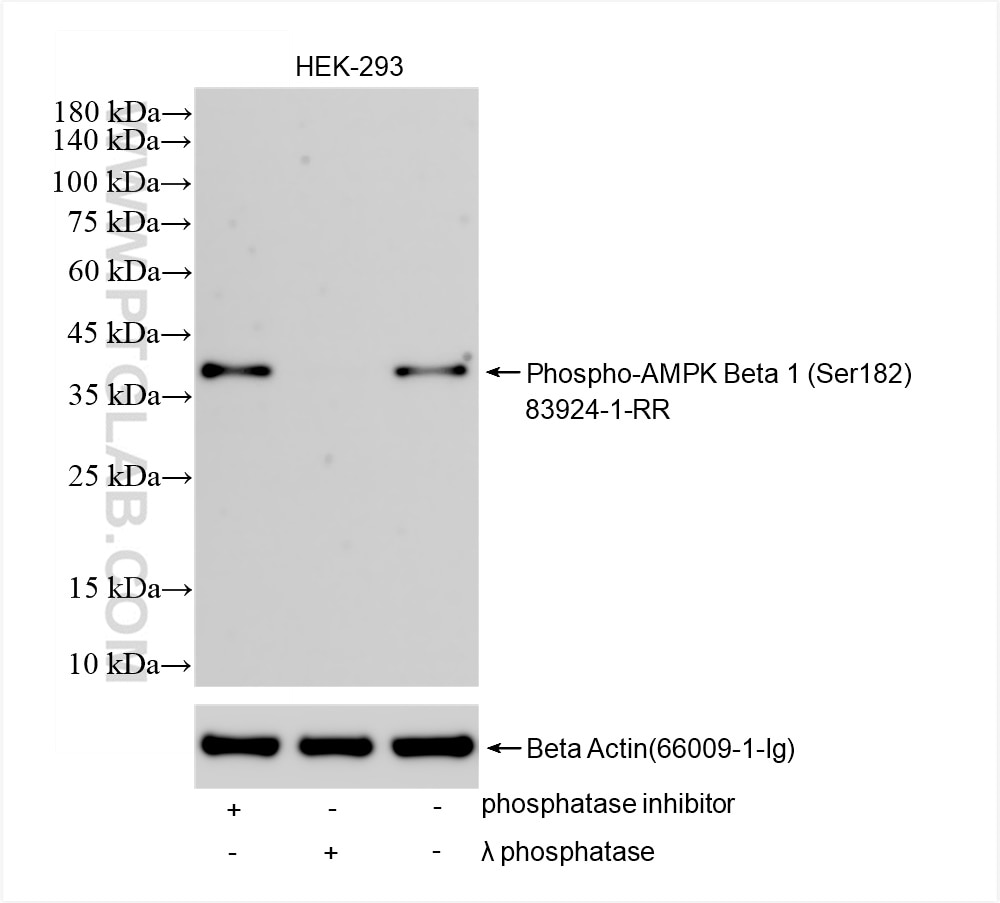Product Information
83924-1-PBS targets Phospho-AMPK Beta 1 (Ser182) in WB, ELISA applications and shows reactivity with human samples.
| Tested Reactivity | human |
| Host / Isotype | Rabbit / IgG |
| Class | Recombinant |
| Type | Antibody |
| Immunogen |
Peptide Predict reactive species |
| Full Name | protein kinase, AMP-activated, beta 1 non-catalytic subunit |
| Calculated Molecular Weight | 38 kDa |
| Observed Molecular Weight | 38 kDa |
| GenBank Accession Number | BC001007 |
| Gene Symbol | PRKAB1 |
| Gene ID (NCBI) | 5564 |
| Conjugate | Unconjugated |
| Form | Liquid |
| Purification Method | Protein A purfication |
| UNIPROT ID | Q9Y478 |
| Storage Buffer | PBS only, pH 7.3. |
| Storage Conditions | Store at -80°C. |
Background Information
AMPK Beta 1 (5'-AMP-activated protein kinase subunit beta-1) is also named as PRKAB1 and AMPK. AMPK, a serine/threonine kinase that exists as a heterotrimer comprised of a catalytic α-subunit and regulatory β- and γ-subunits, has been recognized as a sensor of cellular energy homeostasis (PMID: 21937710). AMPK regulates key metabolic enzymes, cell growth, apoptosis, gene transcription, and protein synthesis (PMID: 12829246). AMPK is an energy sensor and plays an essential role in the control of cellular bioenergetics by responding to various stresses including those that induce changes in the cellular AMP:ATP ratio or modulation in intracellular calcium (PMID: 27812976, PMID: 26616193). Recent studies have shown that AMPK mediates the inhibition of cell proliferation and growth of tumor cells (PMID: 16613876). AMPK also inhibits the expression of Glut1 and glycolysis in Tregs by inhibiting mTORC1 signaling (PMID: 25477880). This antibody recognizes phosphorylated AMPK Beta 1.




